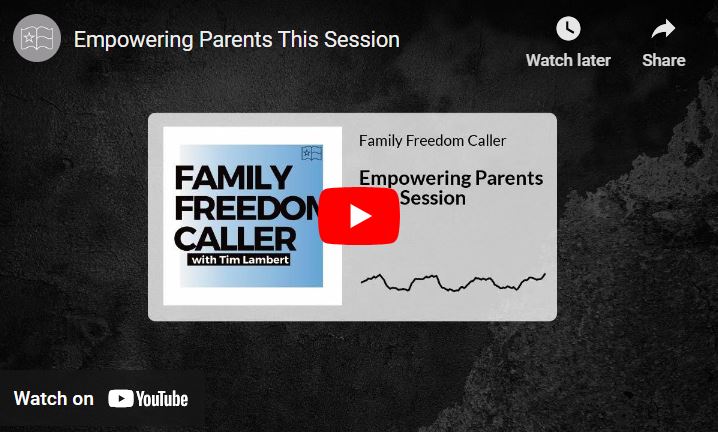By Noel Plaugher
Math anxiety in children is very common. The numbers and symbols on the chalkboard seemed to me as enigmatic as Egyptian hieroglyphics. I had been standing at the front of the class for what felt like a week. One by one, the other kids had all put down their chalk and sat back down. I was the last student at the board, and all eyes were on me. That must be why I was sweating so much. Eventually, the teacher told me to sit down.
“Can anyone else finish it?” the teacher asked the class. A girl’s hand went up, and she bounded to the front. First, she erased all of my work, and then she wrote out the solution as quickly as writing her name. I felt a lump in my throat and a tear in my eye.
That incident happened in the fourth grade, but it affected me well into my later years. A great math teacher later told me I was suffering from “math anxiety.” He told me that being scared of math was common, but often misinterpreted as a deficiency in or dislike of math.
Those days are long past, but often, adults are forced to confront their math anxiety when their children begin their math schoolwork.
Is there a way to make math more bearable for teacher and student? How do you help calm the anxiety?
If you are having problems, try these strategies for yourself and your child:
- Approach the subject with an open mind. My later problems were caused by the fact that I didn’t even try because I told myself it was too difficult.
- When you ask for help listen carefully and don’t say you “get it” if you really don’t.
- SLOW DOWN! Look at the problem and take a moment. Breathe. Often the answer is easier than you think.
- Know your fundamentals. The better you are at arithmetic, the better your foundation. It will greatly improve your ability to solve the problem.
- Acknowledge that some things will be difficult and allow more time to solve them.
- For word problems, write out all of the values given in the question, and read the problem three times.
- There are many great apps available for smartphones. I use DiaMath and Brain Tuner to keep things sharp. It takes minutes a day to keep your math memory mastered.
- Utilize colorful board games, like those at Game Cows, to make math more approachable. Board games are available at a variety of different math skill levels.
- Finally, if nothing seems to help, explore the possibility that you or your student might have a math learning disability called dyscalculia—it’s the dyslexia of math.
I chose to stare my math anxiety down and get better at math. Now I read books about math, watch shows about how math can be used to enhance our lives, and have learned that I really enjoy it. Math is as important as our vocabulary. It is the language of numbers and we should be as proficient at using it as our written and oral communication. Take a breath, give it a try and don’t be scared.
***
Noel is a violent crime survivor, martial artist and author of the book “Standing Qigong for Health and Martial Arts – Zhan Zhuang” published by Singing Dragon. Noel lives in Atlanta, where he teaches and writes about martial arts, Qigong and personal development. Visit him on Facebook.
By Noel Plaugher
Math anxiety in children is very common. The numbers and symbols on the chalkboard seemed to me as enigmatic as Egyptian hieroglyphics. I had been standing at the front of the class for what felt like a week. One by one, the other kids had all put down their chalk and sat back down. I was the last student at the board, and all eyes were on me. That must be why I was sweating so much. Eventually, the teacher told me to sit down.
“Can anyone else finish it?” the teacher asked the class. A girl’s hand went up, and she bounded to the front. First, she erased all of my work, and then she wrote out the solution as quickly as writing her name. I felt a lump in my throat and a tear in my eye.
That incident happened in the fourth grade, but it affected me well into my later years. A great math teacher later told me I was suffering from “math anxiety.” He told me that being scared of math was common, but often misinterpreted as a deficiency in or dislike of math.
Those days are long past, but often, adults are forced to confront their math anxiety when their children begin their math schoolwork.
Is there a way to make math more bearable for teacher and student? How do you help calm the anxiety?
If you are having problems, try these strategies for yourself and your child:
- Approach the subject with an open mind. My later problems were caused by the fact that I didn’t even try because I told myself it was too difficult.
- When you ask for help listen carefully and don’t say you “get it” if you really don’t.
- SLOW DOWN! Look at the problem and take a moment. Breathe. Often the answer is easier than you think.
- Know your fundamentals. The better you are at arithmetic, the better your foundation. It will greatly improve your ability to solve the problem.
- Acknowledge that some things will be difficult and allow more time to solve them.
- For word problems, write out all of the values given in the question, and read the problem three times.
- There are many great apps available for smartphones. I use DiaMath and Brain Tuner to keep things sharp. It takes minutes a day to keep your math memory mastered.
- Utilize colorful board games, like those at Game Cows, to make math more approachable. Board games are available at a variety of different math skill levels.
- Finally, if nothing seems to help, explore the possibility that you or your student might have a math learning disability called dyscalculia—it’s the dyslexia of math.
I chose to stare my math anxiety down and get better at math. Now I read books about math, watch shows about how math can be used to enhance our lives, and have learned that I really enjoy it. Math is as important as our vocabulary. It is the language of numbers and we should be as proficient at using it as our written and oral communication. Take a breath, give it a try and don’t be scared.
***
Noel is a violent crime survivor, martial artist and author of the book “Standing Qigong for Health and Martial Arts – Zhan Zhuang” published by Singing Dragon. Noel lives in Atlanta, where he teaches and writes about martial arts, Qigong and personal development. Visit him on Facebook.











